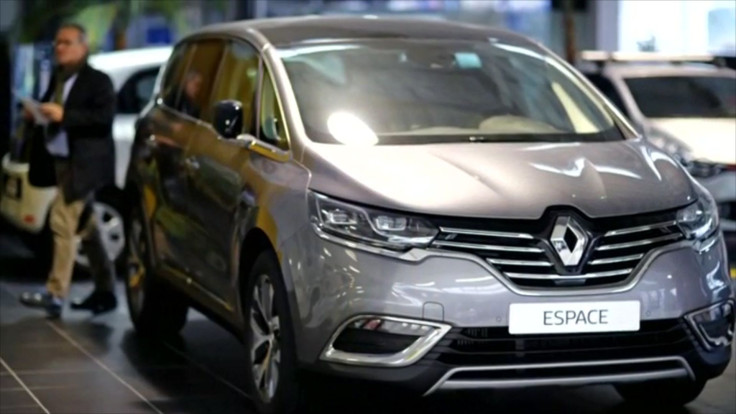VIDEO: Renault Diesel Emissions Coming Under Scrutiny

Nitrogen oxide emissions of Renault's 1.6 dCi Espace were found in tests to be up to 25 times higher than the current Euro-6 limit, according to a German environmental lobby group. As Joel Flynn reports, the DUH reports comes as carmakers come under scrutiny in the wake of a scandal at Volkswagen.
Video Transcript:
On the streets of Paris it's hard to miss a Renault.
It's reputation in France is big -- but its emissions might be too.
According to a German environmental group, Renault's Espace minivan is releasing toxic diesel emissions 25 times the legal limits.
It's the latest development in a scandal that began at Volkswagen.
Mint Partners Capital Markets Strategist, Bill Blain:
"I think it's very likely that we'll see more autos coming into the picture, more of them getting attacked, more of them being fined. But what we'll probably find is the shock and horror effect is less with each successsive name."
Lobby organization DUH says the Espace doesn't comply with EU regulations, because tests were conducted on cold engines.
When the Espace was run on a warm or hot engine, its nitrogen oxide emissions were too high.
Earlier this year, Volkswagen admitted it had used illegal "defeat devices" to cheat diesel regulations.
VW is now facing a second probe into whether car owners paid too little tax on their high-emission vehicles.
"We are going to see the whole perception of the global consumer base towards the autos sector change, and that's particularly true of the diesels sector, where diesels have gone almost overnight from being the cheap, affordable clean car to being the nasty kind of polluters creating all sorts of environmental damage."
Renault has so far not commented on the accusations.
General Motors last month rejected similar findings from DUH on its Opel Zafira model.
EU rules on emissions have already been acknowledged as inadequate by many carmakers.
These latest accusations could shed more light on whether European tests do what they are supposed to.
© Copyright IBTimes 2024. All rights reserved.












